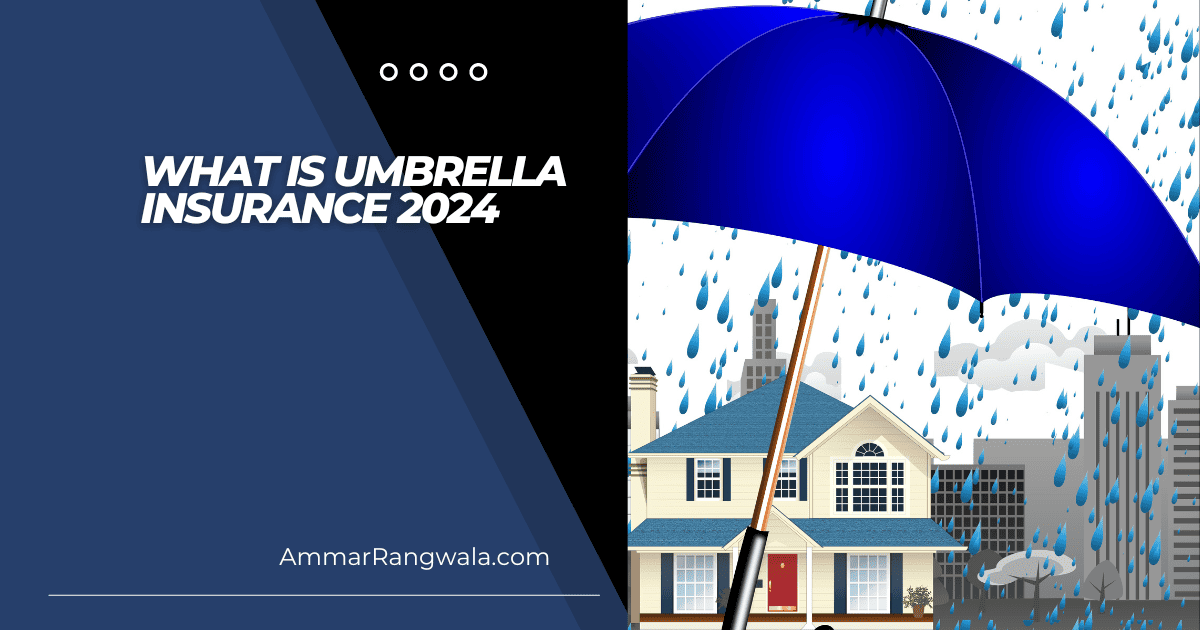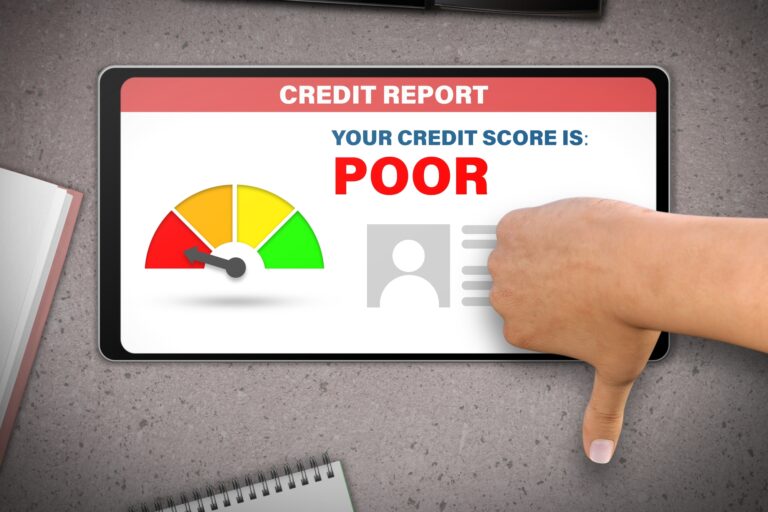What is Umbrella Insurance 2024: Protect Yourself Now

What is Umbrella Insurance?
What if you have towering lawsuits or medical bills exceeding your coverage? That’s where umbrella insurance steps in, a robust snowsuit bolstering your defenses against unforeseen financial avalanches.
Your primary insurance policies are like the first line of defense – a fire alarm, a burglar alarm, a basic medical bandage. Umbrella insurance, however, is a sophisticated security system, a fire sprinkler, and a high-tech trauma kit. It activates when your primary defenses are overwhelmed, covering legal fees, settlements, and judgments that could otherwise bury you in financial snowdrifts.
But umbrella insurance isn’t just for property damage and bodily injury. It extends its protective blanket to unforeseen liability claims across a surprisingly broad spectrum:
- Verbal Avalanches: Umbrella insurance helps dig you out of the legal mess and mitigate the damage.
- Privacy Blizzards: Umbrella insurance builds a sturdy windbreaker against privacy breaches, preventing your personal information from becoming public snowdrifts.
- Rental Property Avalanches: Umbrella insurance provides an extra layer of insulation against tenant-related avalanches.
And here’s the good news: this financial snowsuit won’t cost you a fortune. Premiums often start at a few hundred dollars annually for millions of dollars in coverage. It’s a small investment for a giant leap in peace of mind, knowing you’re not one slip-up away from being buried in financial debt.
Coverage Limits and Exclusions of Umbrella Insurance
Coverage Limits
- Underlying policy limits: Umbrella insurance kicks in when your primary policies (car, homeowners) reach their limits. So, if your auto insurance covers up to $250,000 and a lawsuit exceeds that, umbrella insurance would cover the remaining amount up to its limit.
- Maximum coverage: Umbrella insurance policies typically offer millions of dollars, but the exact amount varies based on your needs and risk profile.
- Sub-limits: Some policies have sub-limits for specific claims, like personal injury or property damage. Be sure to review these carefully to understand your complete coverage.
Exclusions
- Intentional acts: Umbrella insurance won’t cover any damages caused by your deliberate actions, such as assault or fraud.
- Business activities: Professional liability claims will only be covered under your personal umbrella policy if you have a separate business policy.
- Certain types of vehicles: Some high-performance vehicles or recreational boats might be excluded from coverage.
- Pet-related claims: Some policies exclude certain breeds of dogs or liability for pet-related incidents.
Navigating the Complexities
- Review your policies: Understand your coverage limits before considering umbrella insurance.
- Consult an insurance professional: Discuss your specific needs and risk profile with an agent who can tailor a policy to your requirements.
- Read the fine print: Carefully review the policy wording to understand the specific coverage limits and exclusions before signing.
Remember
- Umbrella insurance is not a stand-alone policy. It requires existing car and homeowners insurance.
- It’s not a replacement for liability awareness. Always practice responsible behavior to minimize risks.
- It’s an investment in peace of mind, offering protection against unforeseen liability storms.
Is Umbrella Insurance Right For You?
1. Assessing Your Assets: Consider your assets precious picnic treats. Your home, car, savings, and investments are all potential targets for lawsuits. If you have significant assets to protect, umbrella insurance provides an extra layer of security, preventing them from becoming collateral damage in a legal whirlwind.
2. Risk Tolerance: Are you a cautious picnicker, always mindful of potential spills and gusts? Or do you embrace spontaneity, welcoming occasional crumbs on the checkered blanket? Your risk tolerance plays a key role. If you’re naturally risk-averse, umbrella insurance offers valuable peace of mind, knowing you’re shielded from unforeseen mishaps.
3. Existing Insurance Coverage: Just like multiple picnic blankets offer more protection than one, your existing homeowners and car insurance policies form the first line of defense. Review their coverage limits carefully. If they provide limited liability protection, umbrella insurance can significantly boost your defenses against more extensive claims.
4. Cost vs. Benefit: Consider the cost of umbrella insurance as the price of an additional picnic basket, offering extra protection for your precious treats. Premiums are surprisingly affordable, often starting around a few hundred dollars a year for millions of dollars in coverage. Weigh this cost against the potential financial burden of a significant lawsuit to assess the value proposition.
5. Lifestyle and Activities: Your picnic menu, so to speak, also matters. Do you participate in high-risk hobbies or own rental properties? These activities can increase your liability exposure, making umbrella insurance an even more valuable consideration.
6. Seeking Guidance: Don’t navigate this picnic alone! Consult a trusted insurance professional to discuss your needs and risk profile. They can help you understand the available policies, answer your questions, and determine if umbrella insurance is the right picnic accessory.
Cost of Umbrella Insurance
Cost Considerations
- Coverage amount: The higher the coverage limit, the higher the premium. Millions of dollars in coverage can start around a few hundred dollars a year, but remember, you only pay for what you use (hopefully never!).
- Risk profile: Your age, driving record, claims history, and profession can influence the premium. Consider bundling your policies with the same insurer for potential discounts.
- Location: Living in a high-risk area, prone to lawsuits, could increase the cost.
- Deductible: Choosing a higher deductible lowers the premium, but remember, you’ll need to pay more out of pocket if you need to use the policy.
Saving Strategies
- Maintain a clean driving record: Avoiding accidents and traffic violations can significantly reduce your car insurance premium, impacting your umbrella policy cost.
- Raise your primary policy deductibles: Increasing the deductibles on your car and homeowners insurance can lead to lower umbrella premiums.
- Bundle your policies: Combining your car, homeowners, and umbrella insurance with the same provider can often fetch attractive discounts.
- Shop around: Compare quotes from different insurers to find the best combination of coverage and price. Online quote comparison tools can be helpful.
- Ask about discounts: Don’t hesitate to inquire about potential discounts for things like senior citizens, good students, or loyalty programs.
Choosing a Reputable Insurance Provider
Selecting the right insurance provider is like navigating a treacherous mountain path – one wrong step and your financial security could take a tumble. But fear not, intrepid trekker! Here are some tips to help you find a reputable guide for your financial journey:
1. Seek Expertise, Not Just Sales: Ditch the slick brochures and flashy websites. Look for providers with a strong track record in your type of insurance, experienced agents who listen to your needs, and clear communication from the get-go. Remember, you’re building a long-term partnership, not just signing a quick waiver.
2. Climb the Ratings Mountain: Financial strength should be your Everest. Check independent rating agencies like AM Best, Standard & Poor’s, and Moody’s for their assessment of the provider’s financial stability and claims-paying ability. Remember, a financially sturdy provider won’t leave you hanging halfway down a financial cliff.
3. Explore the Price Panorama: Don’t get lured by the cheapest pitch. While cost matters, prioritize value. Compare quotes from different providers, but delve more deeply than the price tag. Ask about deductibles, coverage limits, exclusions, and customer service options. The cheapest path might be a different ascent.
4. Follow Customer Trails: Check online reviews and forums for real-life experiences. Ask friends and family for recommendations. These are the seasoned climbers who’ve already traversed the path and can point you toward reliable guides.
5. Check the License Landscape: Ensure your chosen provider is licensed to operate in your state. Check your state’s Department of Insurance website for verification. An adequately licensed guide knows the local terrain and can navigate regulatory obstacles.
6. Don’t Be Afraid to Ask Questions: A good provider welcomes inquiries. Ask about claims processing times, dispute resolution procedures, and policy amendments. A guide hiding information in the clouds differs from the one you want on your climb.
7. Trust Your Gut Feeling: Sometimes, you know something’s wrong. If a provider feels pushy, mysterious, or unclear, trust your instincts and keep searching. Choose a guide who inspires confidence and makes you feel secure scaling the financial mountain.
Maximizing Your Umbrella Insurance Coverage
Craft Your Coverage Wisely
- Know your risk profile: Assess your assets, hobbies, and professional activities to understand your potential liability exposure. Tailor your coverage limit accordingly. Millions might seem enticing, but a lower limit with a lower premium could be more practical for your needs.
- Review exclusions carefully: Not all storms are covered. Understand what your policy excludes, like intentional acts or business activities, and consider extra coverage if needed.
- Choose the right deductible: A higher deductible lowers your premium, but be sure you can comfortably afford it if you need to use the policy.
Befriend Your Insurance Pro
- Don’t go it alone: Your insurance agent is your financial cartographer. Consult them regularly to review your coverage, discuss potential risks, and update your policy as your life evolves.
- Bundle and save: Combining your car, homeowners, and umbrella insurance with the same provider often unlocks substantial discounts. Ask your agent about available bundles and explore ways to optimize your insurance portfolio.
- Leverage your good behavior: Maintaining a clean driving record, reducing claims history, and implementing risk-mitigating measures can earn you loyalty discounts or lower premiums over time.
Stay Aware and Proactive
- Review your policy regularly: Don’t let your policy gather dust. Review it annually after significant changes like marriage, property acquisition, or career shifts. Ensure your coverage still reflects your evolving needs.
- Document everything: Keep meticulous records of accidents, incidents, or potential risks. This can be invaluable evidence if you ever need to file a claim.
- Communicate promptly: Inform your insurance provider about any changes in your risk profile, such as new pets, rental properties, or professional activities. Please do so to ensure your coverage in case of a claim.
Remember, it’s a Collaboration
- Umbrella insurance is a partnership: You choose the coverage, but your insurance company holds the reins. Build a trusting relationship with your agent, communicate openly, and work together to navigate any possible legal storms.
- Peace of mind is priceless: Remember to appreciate the value of financial security. Umbrella insurance isn’t just about numbers; it’s about buying peace of mind, knowing you’re protected against the unexpected.
Misconceptions About Umbrella Insurance
Myth #1: Umbrella Insurance is Only for the Wealthy
Reality: While it provides significant protection, umbrella insurance isn’t reserved for mansions and yachts. Anyone with assets to lose – your car, your home, your savings – can benefit from this extra layer of security. Consider it a cost-effective “just in case” shield, protecting your financial future from unforeseen downpours.
Myth #2: I Already Have Enough Coverage with My Existing Policies
Reality: While your car and homeowners insurance offer important protection, their liability limits can be surprisingly low. If a lawsuit exceeds those limits, your assets become vulnerable. Umbrella insurance kicks in where your primary policies tap out, preventing a fender bender from becoming a financial cliffhanger.
Myth #3: Umbrella Insurance Covers Everything
Reality: Like an oak won’t protect you from a hurricane, umbrella insurance has limitations. Intentional acts, business activities, and certain types of vehicles might be excluded. Carefully review your policy and consider additional coverage if needed.
Myth #4: Umbrella Insurance is Expensive and Complicated
Reality: Umbrella insurance is surprisingly affordable compared to the potential financial devastation of a major lawsuit. Premiums can start as low as a few hundred dollars yearly for millions of dollars in coverage. And while the policy wording might seem technical, consulting an insurance professional can help you navigate the details.
Myth #5: I Don’t Need Umbrella Insurance if I’m Careful
Reality: Accidents happen, even to the most cautious individuals. Unexpected events like medical mishaps, slander lawsuits, or rental property mishaps can knock on your door, regardless of your risk-averse lifestyle. Umbrella insurance is a safety net, ensuring peace of mind even when life throws you a curveball.
Examples of Real-life Scenarios Where Umbrella Insurance Can Help
Let’s dive into some real-life scenarios where it can offer invaluable protection:
The Accidental Pool Party Gone Wrong: You’re hosting a backyard BBQ, and your neighbor’s rambunctious child takes an unexpected dip in your pool, sustaining a head injury. Your homeowner’s insurance covers basic accidents, but the medical bills balloon to a staggering sum. Umbrella insurance steps in, shielding your assets from this unexpected monetary tsunami.
The Doggone Liability: Your playful pup becomes overzealous while greeting the mailman, causing a nasty bite and trip-and-fall injury. Your dog liability insurance has limits, but the victim sues for lost wages and pain and suffering. Umbrella insurance deploys its financial rain gear, preventing your furry friend’s playful antics from draining your bank account.
The Rental Property Nightmare: Your well-maintained rental suddenly suffers a burst pipe, wreaking havoc on your tenant’s belongings and forcing them into temporary housing. While your rental property insurance covers some damage, the tenant sues for additional expenses and emotional distress. Umbrella insurance becomes your financial umbrella, weathering the legal storm and protecting your investment.
The Slanderous Social Media Slip-up: In a heated online debate, you unleash a hasty comment that explodes into a defamation lawsuit. Your personal liability insurance might not cover online activities. Umbrella insurance comes to the rescue, offering crucial legal defense and potentially saving your reputation and finances from significant damage.
The Accidental Medical Mayhem: Unforeseen complications arise during a routine medical procedure, leaving your neighbor with lasting disabilities. The hospital’s liability insurance only covers some expenses, and a lawsuit looms. Umbrella insurance becomes your financial first-aid kit, providing the needed coverage to navigate this complex legal situation.
These are just a few examples of how umbrella insurance can act as a financial lifeline in real-life scenarios. From playful pups to online blunders, it offers peace of mind knowing you’re protected from unexpected liability storms that could otherwise drown your assets and future.
Of course, like any good piece of winter gear, umbrella insurance isn’t one-size-fits-all. Consider your personal risk profile, assets, and existing coverage before deciding. Consulting a trusted financial advisor helps determine if this robust snowsuit fits your financial landscape.
Remember, umbrella insurance isn’t a replacement for your primary policies. You activate the emergency beacon when those policies face a financial avalanche. So, the next time you venture into the unpredictable wilderness of life, consider adding umbrella insurance to your financial survival kit. It could be the difference between weathering the storm and succumbing to the financial blizzard.
Note: None of this should be considered investment or financial advice. Please make sure to consult with your financial advisor and do your own due diligence.
Ammar has started several online businesses and is a blogger who loves providing quality content to help others. He is involved with affiliate marketing, domain names, NFTs, and cryptocurrencies. Check out my blog if you want to learn more about these areas and business in general.






